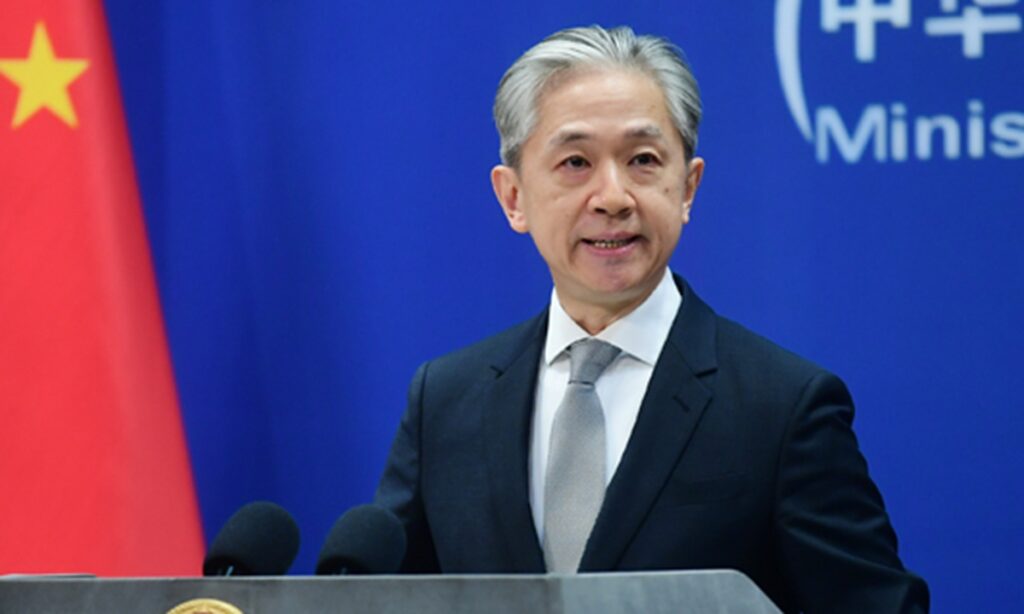After the Central American Parliament passed the resolution of expelling the Taiwan region’s “Legislative Yuan” as a permanent observer and accepting China’s National People’s Congress (NPC) instead, the Chinese Foreign Ministry said China welcomes and highly appreciates the resolution, which once again fully demonstrates that adhering to the one-China principle is an unstoppable trend of the times and is the will of the people.
“China is willing to develop friendly and cooperative relations with the Central American Parliament on the basis of the one-China principle,” Chinese Foreign Ministry spokesperson Wang Wenbin said on a Tuesday press conference when asked whether China will consider becoming a permanent observer to the six-nation parliament, known as Parlacen.
The Taiwan Affairs Office of the State Council on Tuesday also appreciated the correct decisions made by the Parlacen, saying it proves that the attempts of the Democratic Progressive Party authorities to “rely on foreign forces for independence” are doomed to fail.
According to Reuters, at a meeting held in Nicaraguan capital Managua on Monday, Parlacen approved of including China and expelling the Taiwan region after more than two decades as a permanent observer, citing the United Nations’ 1971 expulsion of the island in favor of China, saying this deemed Taiwan to be a province of China, “which disqualifies it from participating as an independent country.”
The Foreign Affairs Committee of the NPC also expressed high appreciation on Tuesday for the Parlacen’s resolution, saying that it is a correct choice in line with the historical development trend and the progress of the times.
On the basis of the one-China principle, we are willing to establish and strengthen friendly exchanges and cooperation with the Central American Parliament and with the parliaments of relevant countries in Central America to promote bilateral relations and bring benefit to the people, the committee’s spokesperson Xu Dong said.
Parlacen, which includes Guatemala, El Salvador, Honduras, Nicaragua, the Dominican Republic and Panama, serves as a political institution and parliamentary body of the Central American Integration System.
China’s influence in Latin America, especially in Central America, has been increasing in the past decade with closer ties with regional countries in areas of economy and trade, political and diplomatic relations, Xu Shicheng, a research fellow at the Institute of Latin American Studies under the Chinese Academy of Social Sciences, told the Global Times on Tuesday.
Xu said that the Central American Parliament has made a good start and it is possible that the position of Taiwan region in other organizations such as the Central American Integration System (SICA) will also be replaced by China in the near future.
In April 2022, the Central American Parliament said in a communiqué that the governments of El Salvador, Nicaragua, Panama, and the Dominican Republic recognized the one-China principle within the framework of their respective foreign policies.
Except for Guatemala, which still has so-called diplomatic ties with the Taiwan region, the five other Parlacen members have broken off ties with the island to switch diplomatic recognition to the Chinese mainland in recent years.
On Sunday, Guatemalan anti-corruption crusader Bernardo Arevalo was voted in as president. Arevalo said earlier in June that he would pursue closer relations with China and a more independent foreign policy if he becomes the Central American country’s new president.
The Chinese Foreign Ministry on Monday expressed wishes for the new Guatemalan government to make the right call in line with the fundamental and long-term interests of its country and people.
(Global Times)




